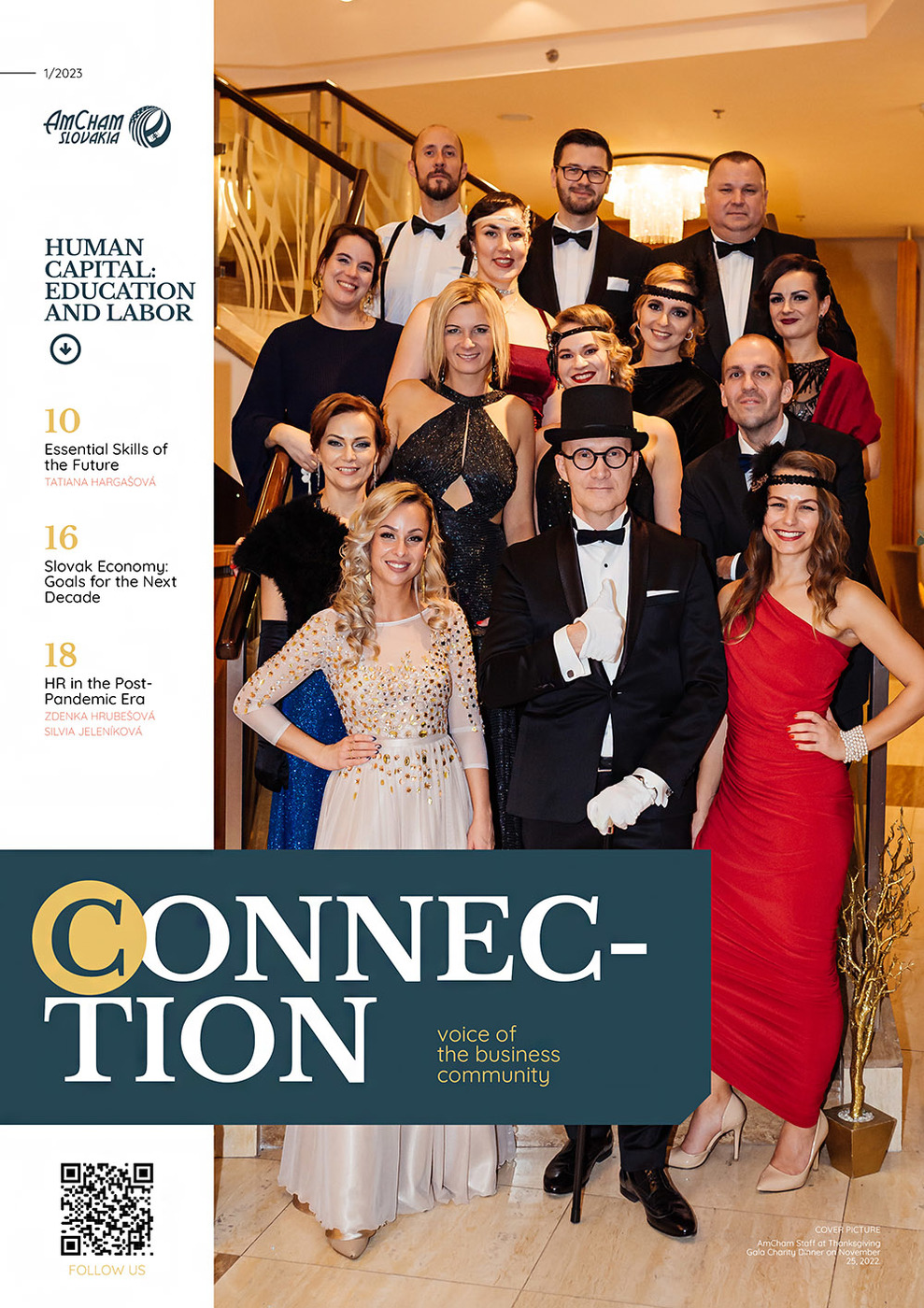How are employers dealing with this situation in cooperation with HR leaders? What should they take into account when responding to the current situation? Not only those questions were the subject of discussion during the AmCham HR Learning Circle held in Košice and Bratislava.
Several organizations have recognized that the current situation will have a major impact on the well-being of employees and have been reviewing HR strategies and policies. The mitigation of the IFC’s impact was reflected in an increase in salary budgets. These financial benefits were mostly dedicated to specific target groups. Alternatively, companies tried to find space in other budget items and move them to the financial perspective of salary. Employers are trying to find additional ways to help workers also with non-financial benefits. Flexible work, part-time work, home offices, or benefits in the area of well-being and psychological support dominated. However, a very important part is the communication on this topic. Regardless of whether employees are paid fairly or not, their perception of the issue influences their decision to stay or leave. A wait-and-see strategy comes very risky here. The employees are expecting transparent communication and do react very sensitively to any actions being taken by their employers.
Therefore, it is important to educate and support all the involved stakeholder groups. A proactive approach, an understanding of the context and sufficient information, regularity, or an empathetic approach are just the basics. How to address pay fairness when inflation is high? How to communicate the decisions to employees without losing them? That was a very important part of our discussions.
And while some trends in the future will seamlessly follow the existing ones (starting with perfecting hybrid work; improving the employee experience and visibility; reprioritizing recruitment strategy in alignment with actual business strategy and situation on the market and not forgetting attraction and retaining top talents), others will develop and will require a completely different approach.
Organizations are entering into a human-first era, which calls for changes in leadership style as well as in organizational design and change management. Leaders will be required to be more authentic, empathetic, and adaptive. A human-centered approach to strengthening relationships can help boost morale and engagement. HR leaders should offer a helping hand in redesigning the role of leaders and help to prepare them for the future of work. We mustn’t forget to combine humanity and hybrid work and keep our focus on retaining talents.
This era brings a new opportunity for the HR community to closely collaborate with business leaders to successfully handle the changes in the world of work and the workplace. HR should play a significant role in managing organizational changes and driving strategic impact through people.
And that is why we at AmCham plan to continue with the HR and CEO learning circles to foster inspirational discussion and support education through knowledge sharing and best practices exchange in 2023.
Júlia Jurčíková, HR Manager, AmCham Slovakia



Follow us